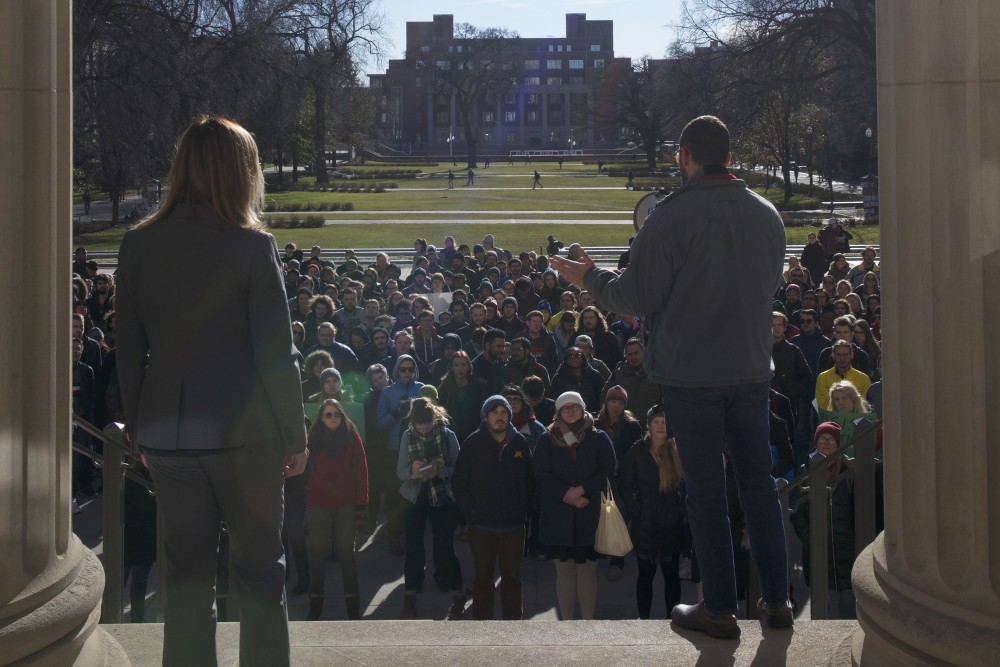Armed with signs and megaphones, more than 200 graduate students, research assistants, teaching assistants and instructors left classes Wednesday to protest a tax reform package being considered in Congress.
Those marching said the tax plan would sharply increase graduate students’ tax burden and called on the University of Minnesota to address current graduate student conditions.
The Senate is expected to vote on its version of the tax plan this week. The House already passed its version of the tax bill on Nov. 16, with 13 Republican representatives voting no.
“I want to see this tax plan go down,” said Shannon Negaard, a University mathematics graduate student attending Wednesday’s walkout.
Under the tax plan, graduate students’ annual tuition stipends would count toward their taxable income – leading to deeper out-of-pocket costs.
As a graduate student, Negaard said she doesn’t make much money so “taking more out of our paycheck just doesn’t make any sense.”
“Tuition isn’t really a benefit we feel until we get our degree,” she said.
Michael Soto, a University sociology graduate student, said at the march the stipend graduate students receive is “barely manageable.”
Soto saved money for 10 years prior to graduate school but said he still has to work an extra job to afford his education.
“An additional tax would just be too overwhelming,” he said.
Organized by UMN Grads United, marchers chanted “grad power” as they made the walk from Coffman Memorial Union to Morrill Hall, which houses University President Eric Kaler’s office.
The group called on Kaler and Dean of Graduate Education Scott Lanyon to take further steps to protect graduate students.
Grads United Organizer Elena Gambino said the University has encouraged students to contact local lawmakers but added campus officials still need to “ramp up that pressure.”
The University also needs to address the conditions that “make [graduate students] so vulnerable to attacks like this,” Gambino said. Graduate students face low wages and high fees, she said.
“We see this tax issue as being a symptom of this broader problem,” Gambino said.
Addressing the crowd, international sociology graduate student Snigdha Kumar said international students already face higher student fees, taxes and costs associated with moving to the United States.
Plus, she said, international students often send money back home to their families.
If passed, Kumar said the bill “will force many of us to drop out.”
Oanh Nguyen, a political science graduate student, said international students also don’t have the ability to contact lawmakers because they don’t have full citizenship rights.
“We need to start thinking about ways that grad students can act politically… beyond that one particular route,” Nguyen said.








